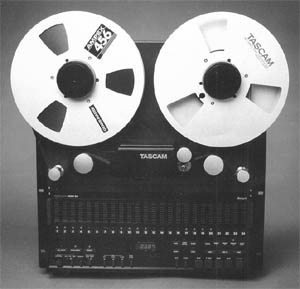 We work with a lot of newly released edits of original older music from the 70s and 80s. Usually a client asks us for help to beat grid, time edit or warp them to get them to behave in their DAW or DJ software. After further investigation, we almost always find that the producer of the new edit hasn't edited the timing of the original track that they have sampled or the resulting samples that are in their shiny new release. This always results in a track with a drifting tempo that won't automate alongside other tracks easily and needs BPM editing work.
We work with a lot of newly released edits of original older music from the 70s and 80s. Usually a client asks us for help to beat grid, time edit or warp them to get them to behave in their DAW or DJ software. After further investigation, we almost always find that the producer of the new edit hasn't edited the timing of the original track that they have sampled or the resulting samples that are in their shiny new release. This always results in a track with a drifting tempo that won't automate alongside other tracks easily and needs BPM editing work.
Why won't older music fit into grids and behave?
Before we let computers into our lives, music production was done using tape technology. Tape in the studio had it's positives and negatives, but a major negative was its effect on the timing of the music. The tape itself was wrapped around two spools (DAT) or reels (multitrack), between which magnetic tape was pulled backwards and forwards. This moving of the tape was mechanically controlled by the recorder/player, but it was not an exact science like our recording methods using computer memory and hardrives today, which are accurate to the millisecond. The mechanical movement of the tape and spools/reels introduced very slight drifts in timing -- also experienced with vinyl records from belt or magnetic driving systems! This is why audio from before the year 2000 (rough estimate of when we moved from DAT to computers) is always quite slippery when you put it up against modern music in your DAW or DJ software. Those slight shifts backwards and forwards constantly affect the overall tempo of the track, and make it sound terrible when synced using automation with modern music without any manual correction while playing or prior editing.
Edit timing of the audio before production for better results
It's obvious to us that there are some modern DJs who would abandon tracks that can't be automated. There are still many DJs who are happy to line up their tracks the old fashioned way (including me), but there are also many who won't do it these days. So don't limit your potential audience by making an edit that is difficult to automate without BPM editing. If you're planning on creating a new edit release of older music, then I'd recommend that you consider BPM editing the original audio first. Do it yourself, or ask us for help. We have 10 years of BPM editing experience to put into every job. Careful editing doesn't just require attention to detail with timing, but each track will also need it's own strategy to maximise the best sound quality retention during the BPM editing process.
Subject Area:
BPM Editing

Got tracks that won't fit into beatgrids?
We edit bad timing from problem tracks and reproduce files without those issues.
